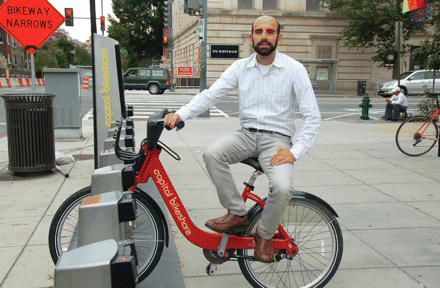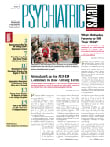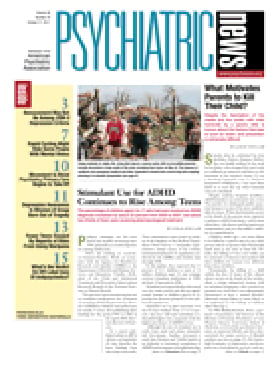In some cases, rapid cycling may be good for people with mental illness.
No—not that kind of rapid cycling.
A young Washington, D.C., psychiatrist has begun a study to see if riding bicycles around town will improve the mental and physical health of people with mental illnesses.
Yavar Moghimi, M.D., began planning the pilot study before he finished work this summer with mentally ill adults at the McClendon Center in Washington, D.C., as part of his residency at George Washington University. He is now a staff psychiatrist at Whitman-Walker Health, a federally qualified health center in the nation's capital.
The study is funded by a grant from the Minority Fellowship Program, funded by the Substance Abuse and Mental Health Services Administration and administered by APA.
Study patients will get memberships in Capital Bikeshare, a year-old program that allows participants to check bikes in and out of 18 docking stations around the city. Another 32 stations are planned for the coming year in Washington, D.C., and more in the surrounding suburbs. Capital Bikeshare says it now has 16,000 annual members who have made about 1 million bike trips over the last year.
The 20 patients in the study have received a variety of diagnoses—posttraumatic stress disorder, depression, bipolar disorder, schizophrenia, borderline personality disorder, and obsessive-compulsive disorder, said Moghimi.
He will measure a number of variables at baseline and after one, three, and six months in the study, including blood pressure, body mass index, and heart rate. Participants will also answer questions from the Brief Symptoms Inventory and the Symptom Checklist-90 to report on their perceptions of issues concerning health-related quality of life. Still more information will come from the Pedestrian and Bicycling Survey, used by urban planners.
Added to this will be data collected by the Bikeshare system, which logs check-out and check-in times and locations. Soon the system will also be able to estimate calories burned based on that information. Capital Bikeshare charges for the time the bike is checked out, so riders are expected to be pedaling during most of that stretch.
"For calories burned, we start with a base equation assuming that a 180-pound person traveling at 7.456 mph burns 43 calories per mile," explained Bikeshare manager Josh Moskowitz, of the District Department of Transportation in Washington, D.C. "So calories burned are equal to 43 calories multiplied by miles traveled."
"This will give us a pretty close sense of what the participants are doing," said Moghimi.
There is also a group of 20 subjects who have a mental illness (but not necessarily the same distribution of diagnoses) on a waitlist for Capital Bikeshare who will serve as controls.
Logistical preparation has taken some time, but the Bikeshare staff are enthusiastic about the project, Moghimi said.
"We had to get our participants memberships, and then train them in using the system," he said. "Members of the Washington Area Bicycling Association are teaching them how to ride safely."
Providing access to bicycles could help mentally ill people in several ways, Moghimi hypothesized. They could go from place to place more directly than even by using the Washington region's extensive public-transportation system, which might encourage bicycle use. The exercise might do them good in several physical ways, and two-wheelers might be a more attractive, accessible, and affordable alternative to going to a gym every day—at least when the weather is nice.
"It is easier to integrate bicycles as a form of transport with their ability to improve health," he said.
Moghimi's grant will cover the first six months of his trial, but he hopes to attract more research funding to permit a crossover study with the waitlisted patients in the control group.


